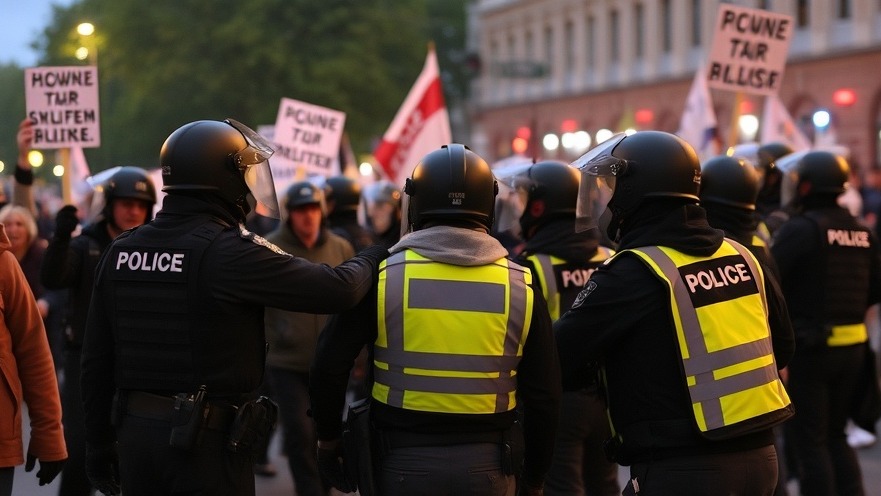
University Clashes with Pro-Palestinian Protesters: A Turning Point in National Discourse
Columbia University recently found itself in a heated confrontation with pro-Palestinian demonstrators occupying its Butler Library, prompting the institution to call for assistance from the New York City Police Department. This unprecedented move raised questions about safety, protest rights, and the potential repercussions of escalating tensions amid ongoing global conflicts.
The Chaos Unfolds at Columbia University
On May 7, 2025, a large group of demonstrators attempted to push their way into Butler Library, leading to a chaotic scene that disrupted the university's services. Videos captured individuals vandalizing property within the library, and as tensions escalated, Columbia's Acting President Claire Shipman cited safety concerns for requesting NYPD intervention. "It was absolutely necessary to secure the safety of our community," she emphasized when announcing the decision to involve law enforcement.
Understanding the Rights to Protest: The Fine Line
Public officials, including Mayor Eric Adams, chimed in on the debate regarding the balance of peaceful protest and maintaining order. Adams stated, "New York City will always defend the right to peaceful protest, but we will never tolerate lawlessness." This statement reflects a broader societal concern about the limits of civil disobedience during sensitive political climates, particularly as the U.S. grapples with multiple domestic and international issues.
Mixed Reactions from the Community
The response from the Columbia community has been polarized. Some argue that law enforcement presence is crucial for ensuring safety in scenarios where large crowds gather. In contrast, others view NYPD’s involvement as a suppression of the fundamental right to protest freely. A senior student noted, "While I understand the need for safety, I can't help but feel that calling the police sends a message that dissent isn't tolerated here." This sentiment resonates with protests nationwide, where similar issues arise when peaceful demonstrations confront authoritative responses.
A Broader Implication for Education Institutions
This incident underscores a growing concern for educational institutions: how to foster an open environment for discourse while ensuring student safety and institutional integrity. Colleges and universities have long been the epicenters of social change and protest; thus, incidents like the one at Columbia University may set a precedent for how future protests are managed. Educational leaders must navigate these turbulent waters without stifling the voices of students passionate about the causes they support.
All Eyes on Columbia: What Happens Next?
The aftermath of the incident at Columbia University remains uncertain. As protests continue across campuses in solidarity with Palestine, this scenario may lead to crucial discussions about the actions that institutions should take in response to activism. Will universities adopt more robust strategies for managing protests? Or will we see an increase in police involvement in student affairs?
Your Voice Matters: Engage in the Discourse
As the landscape of socio-political activism evolves, engaging in these discussions is crucial. Understanding the delicate balance between safety and the right to protest can shape how our communities respond to future incidents. Consider reaching out to your local representatives to express your thoughts or join community discussions to be part of the change.
 Add Element
Add Element  Add Row
Add Row 



 Add Row
Add Row  Add
Add 


Write A Comment